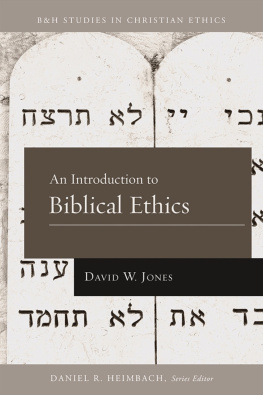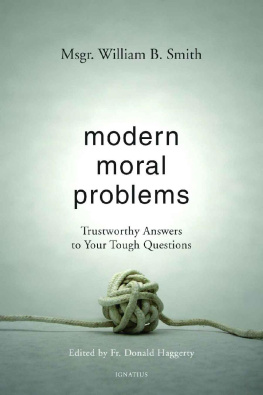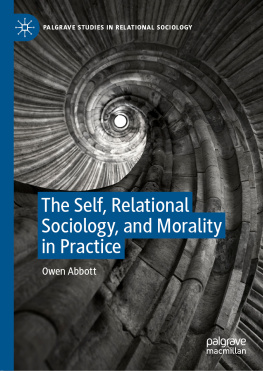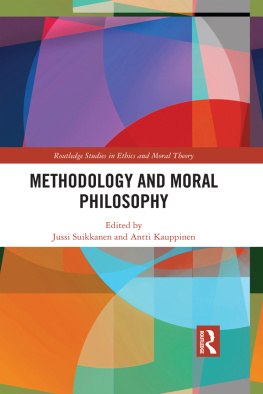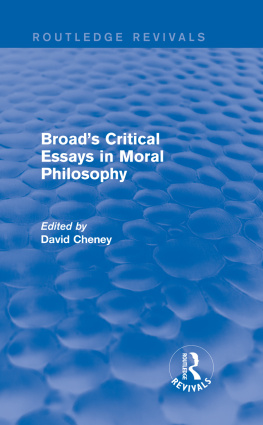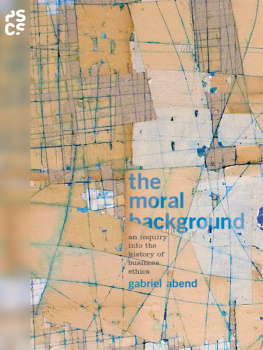1995
by David H. Smith
All rights reserved
No part of this book may be reproduced or utilized in any form or by any means, electronic or mechanical, including photocopying and recording, or by any information storage and retrieval system, without permission in writing from the publisher. The Association of American University Presses Resolution on Permissions constitutes the only exception to this prohibition.
The paper used in this publication meets the minimum requirements of American National Standard for Information SciencesPermanence of Paper for Printed Library Materials, ANSI Z39.48-1984.
Manufactured in the United States of America
Library of Congress Cataloging-in-Publication Data
Smith, David H., date
Entrusted : the moral responsibilities of trusteeship / David H. Smith.
p. cm.(Philanthropic studies)
Includes index.
ISBN 0-253-35331-9
1. Trusts and trusteesUnited States. 2. EndowmentsUnited
States. 3. Charitable uses, trusts, and foundationsUnited States.
4. Nonprofit organizationsUnited States. I. Title. II. Series.
HV97.A3S63 1995
361.7632dc20 94-37965
1 2 3 4 5 00 99 98 97 96 95
F OR MORE THAN ten years I served on the board of Hospice of Bloomington, a small nonprofit organization in my hometown. During parts of that period, I invested a lot of time in the organization. Like many others, I was involved because I was committed to what hospice stood for, but I found that a very large fraction of my attention was focused on practical concerns: fund-raising, staffing, physical facilities. I tell part of the story of Hospice of Bloomington in of this book.
The experience of working with hospice started me thinkingnot just about hospice but about the governance of nonprofit organizations in general and about the trustee mode of governance in particular. A series of questions arose: Is governance by a board the way we should organize things? What are the major duties of persons who take on a trustees role? Can we make any generalizations about the sorts of problems that trustees face? How should trustees be related to the rest of the organization? What are the prime virtues of a trustee?
This book represents my first attempt to comment on these questions. I intend it mainly for persons I think of as reflective trusteespeople who find themselves entrusted with a major responsibility and who want a conversation partner as they wonder how best to discharge it. Such a reader should not turn to the book for a recipe about how to run a meeting, recruit board members, or balance the budget. Several people more experienced than I have written helpfully about those very important issues. I want to step back from the immediate questions to offer some ideas and raise some issues that may put trusteeship into perspective. In fact, the main idea of the book is that trustees should be reflective, that the board should be a community of inquiry, more precisely, a community of interpretation.
But I admit that I have a secondary agenda, for the trustees historically and currently important role has been little studied by moralists, philosophers, or theologians. The classic issues of political philosophy are the legitimacy and limits of state authority; more recently, professional ethics has focused attention on the responsibilities of physicians, nurses, journalists, and managers. Moral issues associated with nonprofit governance have fallen into the cracks. I will be glad if this book serves to suggest the need for academically sophisticated discussions of the moral parameters of trusteeship, studies that will go beyond and improve on this attempt.
I begin the book by explaining what I think the central moral responsibilities of a trustee are. I offer the best defense I can against what I think of as the most serious criticism of trustee power: that it is paternalistic, denying to citizens power they should exercise more directly. In I continue the discussion of the moral legitimacy of trusteeship, responding to two important objections to trustee governance. The first section concludes with an illustration of what we see when trustee governance is looked at using the categories I propose.
In is both harder and easier to resolve than is a problem of doubt.
Finally, in the last portion of the book, I illustrate what might be said about purpose, taking higher education as my paradigm case. I also talk about the boards special relationship to the rest of the organization and the main virtues of good trustees.
In the course of this discussion, I consider a series of cases or situations in which trustees faced hard choices. These cases include problems about the tenure of a controversial theologian at the Catholic University of America and issues faced by hospital trustees at the University of Chicago Hospital and by the boards of Hospice of Bloomington and the United Way of Monroe County. I also discuss some of the problems concerning the Robert Mapplethorpe exhibit at the Corcoran Gallery of Art in Washington, D.C.
I have neither the space nor the competence to discuss any one of these issueslet alone all of themthoroughly. Nor have I singled out these events because they seem to me to be unusually important abuses of trustee responsibility. To the contraryin all of them trustees have taken their responsibilities seriously, and in some of them the trustees actions seem to me to have been exemplary from beginning to end.
I have singled out these histories because information about them was accessible and because the study of actual practice is essential if we want to learn more about trusteeship in any detail. To learn more about the moral parameters of trusteeship, we must study some things that trustees have done. In the final section I fill in some important blanks. I specify three general duties that the board has to the organization for which it is responsible: duties of reasonable support, of standing for justice, and of subordinating institutional self-preservation to mission. I then argue that discussion of mission is inevitably a matter of ethics and morality; this fact has implications for the qualities necessary in board members. Finally, I present a quick set of implications of the argument of the book and offer some practical suggestions for trustees.
For a short book, this one has been a long time in the making, and the debts I have accumulated are unusually extensive. The first and greatest debt is to the Lilly Endowment. With the support of then Senior Vice President Robert W. Lynn I committed myself to write this book in 1988. When Craig Dykstra replaced Bob Lynn as Vice President for Religion at Lilly, he commiserated, cajoled, and awaited the product with remarkable patience. I remain grateful for that patience and to the Endowment for supporting me as I worked into new territory. Others will have to assess the wisdom of the investment.
At about the time that I began this book, I was invited to join the National Seminar on Trusteeship, a wonderful group of scholars of and consultants to trustees, convened by Richard Chait and Miriam Wood. The National Seminar provided me with an invaluable support community, especially early in the project. Later I became a member of the Indiana University Center on Philanthropys Seminar on Governance of Nonprofit Organizations. That more classically academic group did a splendid job of pulling up my socks, and into the bargain introduced me to issues and scholars with which and with whom I hope to be involved for the rest of my professional life. Members of both seminars patiently endured and criticized early versions of part of of this book, and it is much better as a result. I was particularly helped by comments by Peter Dobkin Hall offered at a meeting of the Seminar on Nonprofit Governance.


